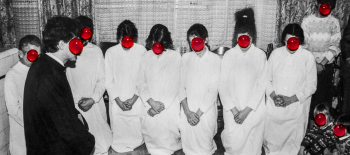The renowned Polish-Lithuanian writer Czeslaw Milosz (1911-2004) would have been 110 years old this year. Born in Šeteniai and spending his study years in Vilnius, the capital of present-day Lithuania, he was a survivor of the Nazi occupation of Poland, a member of the Polish Foreign Service under the communist regime, and then a strong critic of communism. He encapsulated in his person the story of the Baltic-Eastern European cultural, national and geopolitical ‘borderlands’. Milosz became instantly famous on publication of his classic The Captive Mind (1953). The culminating chapter of the book – ‘The lesson of the Baltics’ – tackles the ‘fate of nations trampled down by history’. Today, well over a century after Milosz’s birth, the Center for Geopolitics at Cambridge University ask what his work meant in his own time and what it holds for today.
The event will be kindly hosted by the Cambridge University Centre for Geopolitics, and organized by the Lithuanian Culture Institute, Lithuanian Embassy in the UK, the Polish Institute in London, Cambridge Polish Studies, and the Institute for Literary, Cultural and Translation Studies at Vilnius University.
With the participation of:
Tomas Venclova, Clare Cavanagh and Robert Faggen
chaired by Stanley Bill
Tomas Venclova is a Lithuanian poet, prose writer, scholar, philologist and translator of literature. He is one of the five founding members of the Lithuanian Helsinki Group. In 1977, following his dissident activities, he was forced to emigrate and was deprived of his Soviet citizenship. Since 1980 he has taught Russian and Polish literature at Yale University. Considered a major figure in world literature, he has received many awards, including the Prize of Two Nations (received jointly with Czesław Miłosz), and The Person of Tolerance of the Year Award from the Sugihara Foundation, among other honors. Tomas Venclova has titles of the honorary doctor from Vilnius University as well as the Vytautas Magnum University in Kaunas, University of Göttingen, Catholic University of Lublin, Jagiellonian University in Krakow, Nicolaus Copernicus University in Toruń; he is also the international
member of Polish Academy of Arts and Sciences. For his work Tomas Venclova has been awarded numerous prestigious prizes including the prestigious Petrarca-Preis for Literature and Translation and Vilenica International Literature Award.
Clare Cavanagh is Frances Hooper Professor and of Arts and Humanities and Professor of Slavic Literatures and Comparative Literary Studies at Northwestern University. She was elected to the American Academy of Arts and Sciences in 2019. Her book, Lyric Poetry and Modern Politics: Russia, Poland, and the West received the National Book Critics Circle Award in Criticism for 2010. She received a 2018 American Academy of Arts and Letters Award in Literature and a 2019 ZAIKS Award from the Polish Writers Union for her many volumes of Polish poetry in translation, including the work of Wisława Szymborska, Adam Zagajewski, and Ryszard Krynicki. Other honors include the Harold Langdon Translation Award from the Academy of American Poets; the PEN/Book-of-the-Month Club Translation Award; the MLA William Riley Parker Award; and fellowships from the NEH and Guggenheim Foundation. Her work has been translated into Russian, Polish, Hungarian, French, Dutch, Chinese, and Japanese. She is currently working on an authorized biography of Czesław Miłosz (under contract, Farrar, Straus, and Giroux).
Robert Faggen is a Barton Evans and H. Andrea Neves Professor of Literature at Claremont McKenna College. In 2009, he helped found the non-profit Czeslaw Milosz Institute and Archive there, encouraging and benefiting the study of Milosz and Polish culture. A graduate of Princeton University, Faggen earned his M.A. and Ph.D. from Harvard. In 1988, he joined the faculty of Claremont McKenna College and became an associate professor in 1994. In 2005, he was awarded the Barton Evans and H. Andrea Neves Professor of Literature chair. Among his awards is a prestigious 2011 Guggenheim Fellowship, and he has been a Graves Fellow as well as a National Endowment for the Humanities Fellow. Faggen is a contributing editor of The Paris Review, has published articles in the Los Angeles Times Book Review and Partisan Review, and has composed critically acclaimed editions of works by Czeslaw Milosz, Robert Frost, and E. A. Robinson.
Stanley Bill is Director of the Polish Studies Programme and Chair of the Cambridge Committee for Russian and East European Studies (CamCREES). He works largely on twentieth-century Polish literature and culture, and on contemporary political discourse in Poland. He has particular interests in populist discourse, postcolonial interpretations of Polish cultural and political history, the poetics of the body, religion and secularization, and Polish-Ukrainian relations. He has written on monism and pluralism in Polish politics, postcolonial theory in the Polish context, legacies of Polish Romanticism, and the works of Czesław Miłosz, Bruno Schulz, and Fyodor Dostoevsky.



